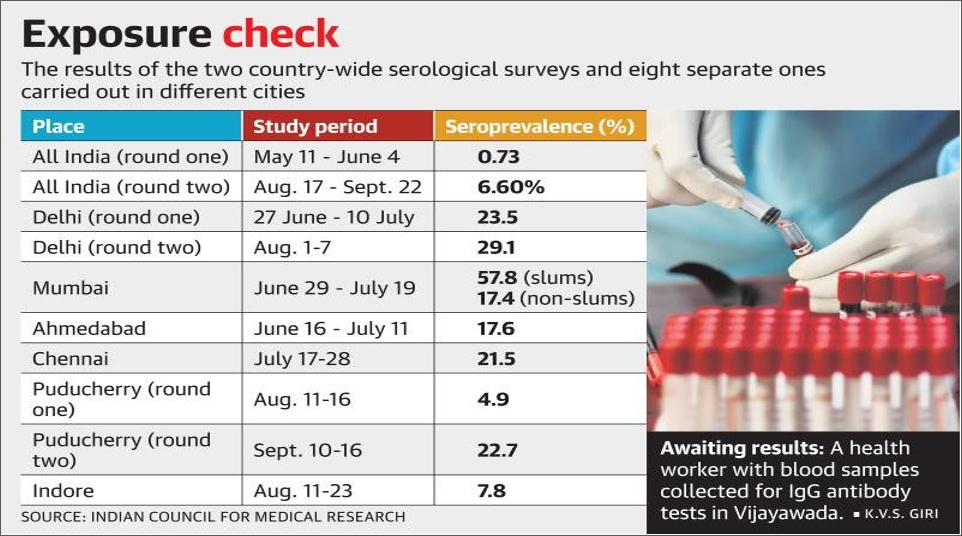- Around 7% of India’s adult population may have been exposed to the coronavirus till the last fortnight of August, according to the second national sero-survey by the Indian Council of Medical Research (ICMR).
- This is roughly a 10-fold jump in numbers from the first sero-survey conducted by the Council across 70 districts in 21 States that sought to estimate the likely number of infected until early May.
- The people tested in the second survey were drawn from the same villages and clusters as the first, in which the scientists said that 0.73% of adults — or about 6.4 million — across the country were likely infected.
- Sero-surveys are conducted by drawing blood samples and checking for a specific class of antibodies called IgG that appear within two weeks of an infection.
- Because it is yet unclear how long antibodies to the coronavirus detectably persist in the body, their presence only indicates past exposure to — and not presence of — the virus.
- Urban slums at risk
- Risk in urban slums is twice that of non-slums and four times that in rural settings.
- One in fifteen individuals above 10 were exposed to the virus by August and there was no difference by age group and gender.
- The country wide prevalence of the virus was similar to that seen in the United States, which was around 9.3%.
- Brazil and Spain had a prevalence of 2.8% and 4.6%.
- The average prevalence in major cities in India ranged from 50% in Mumbai to 29% in New Delhi, 22% in Chennai and 7.8% in Indore.
- The sero-survey, because it aims to capture national prevalence, samples many more from rural India than cities to reflect the population spread in the country.
